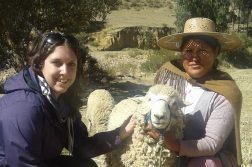For many college programs, field placements are an important component and are extremely beneficial to students. But those who are unfamiliar with field placements should do some research to avoid being caught unprepared for the demands of finding one.
I’ve noticed several inadequacies in the overall process which have hindered my own field placement search. Although I have not failed in the face of these problems, other students may be able to avoid them altogether by preparing for the situations that I’ve encountered.
First, researching is key. It’s crucial to know what to expect of a new school or program, as well as what they will expect from you. Being unprepared can lead to unnecessary stress at a critical time in your studies. Ask faculty members of the program you’re interested in to find out more about how their placements work, not general administrative staff.
When I applied to the journalism program at my college I knew there was the opportunity for a field placement in our final semester. But it wasn’t until my third and final year began that I realized how much I didn’t know about it.
Second, don’t waste any time. My teachers advised us to start our search for a field placement position early in the school year, suggesting that we try to have it set up before Christmas. Strange, considering our “Field Placement” class was not scheduled until second semester. This struck me as unhelpful, since we were expected to create a professional media résumé with no actual instruction.
The class itself should take place during the fall semester to provide students with ample time to set up their placement, considering that many students are juggling a full course load as well as a part-time job to cover expenses. Job hunting is a full-time endeavor, and the commitments students have hardly leave any spare time.
Being as busy as I was, I put it off. I allowed myself to prioritize immediate schoolwork and put finding a position on the backburner. But the last semester of a program is never a lighter workload, and I wish I had known how busy I would be with assignments for other classes.
Third, don’t expect a placement course to give you all the answers. My first assignment was to put together a media résumé and cover letter. This was without being shown any examples of either one. Our advice was to make an appointment in Career Services for help with a résumé, where staff gave instructions that conflicted with what the teacher had asked for.
Other teachers in the program hesitated to give advice on writing a résumé. They said everyone’s opinion is different and that there’s no “right way” to write a résumé. If I had known that earlier, I would have put mine together a lot sooner.
And finally, approach this as a job search for a ‘real world’ full-time position. The application process is the same, as well as the follow-up, and many organizations will require an interview before agreeing to take you on.
Remember, the fact that pay isn’t required doesn’t guarantee anyone the spot. You may be competing with students from other schools for a position, so be ready to keep looking if your first choice doesn’t work out.
Field placements provide real-world experience in a specific field, adding value to a résumé and opening doors for networking. The positions are such stepping stones for students that colleges offering them as part of the curriculum now advertise with that information, using it as a kind of selling feature.
What I recommend? Know what you’re buying into.
Contributed by:
Emily Wood, Student
BA, with minor in Communications from the University of Ottawa; graduating this Spring from Print and Broadcast Journalism.








Discussion1 Comment
merci